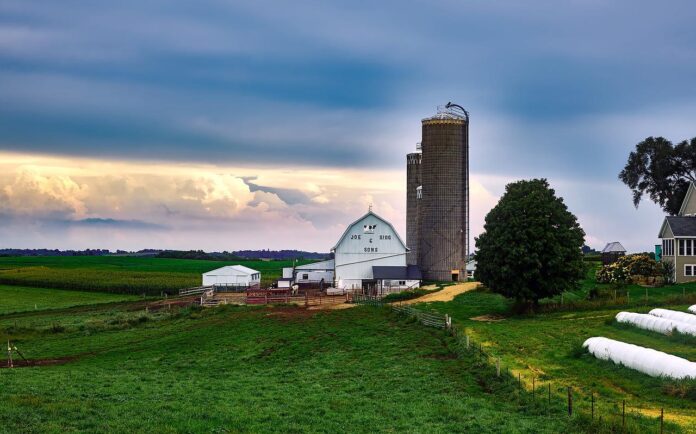Demeter is a common name in the grain trade. For example, Indiana-centered Demeter LP was a family-owned, regional grain business for more than 50 years before its purchase by Wisconsin-based DeLong Co., in 2019.
Another Demeter-themed company, Demeter Grains, currently exports “animal feeds, grains and pulses for human consumption” from Perth, Western Australia, to most of East Asia and the American West Coast.
It’s not a coincidence that these companies — there are several more — share the name. Revealingly, Demeter is the Greek goddess of agriculture, grain and bread who, mythology maintains, “sustained mankind with the earth’s rich bounty.” She is “depicted as a mature woman … bearing a sheaf of wheat or a cornucopia and a torch…”
It’s the cornucopia that Americans have made its centerpiece at today’s Thanksgiving celebrations. We weren’t the first. The ancient Greeks filled their cornucopia — a goat’s horn they called the “horn of plenty” — with “flowers, fruit, and corn,” notes my 1937 edition of the Oxford English Dictionary.
The Oxfordians, however, were doing some mythmaking of their own with that explanation. There was no corn in ancient Greece — or, in fact, in all of Europe — until Christopher Columbus carried it back from Mexico in 1493.
There were no cornucopias (or goat horns either) at the Thanksgiving dinners on the southern Illinois dairy farm of my youth. In fact, I don’t clearly remember more than one or two Thanksgivings on the farm while growing up. My mother, an excellent cook, let other relatives do that holiday hosting while she did that holiday’s visiting.
And who could blame her? A day of true thanksgiving to her was any day that didn’t put her in the kitchen for most of it while making meal after meal for a husband, six children and Dad’s ever-present Uncle Honey.
I caught on early to Mom’s “go-to-Grandma’s” Thanksgiving pattern and usually volunteered to remain home so my father or one of my older brothers wasn’t forced to leave the feast mid-afternoon to do the evening milking.
It wasn’t a sacrifice; I sought it out for several reasons.
First, I was a free bird from late morning until our 4 p.m. milking time every Thanksgiving. That thought alone was sweeter than Grandma’s pecan pie because it held adventure-filled possibilities like hiking to the woods along the river, eating a lunch of thick, just-made chocolate pudding or lighting up one of Dad’s unfiltered Camels for a dizzying puff or two.
Then there was the money. I was paid 50 cents an hour for farmwork, and I fought my older brothers to get as many hours a week as they conceded. The small earnings were vital to finance my modest independence. They paid for the clothes I wanted to wear, the movies I wanted to see and the expected $1-per-week church donation my parents wanted to see.
Only much later did I learn that those days were really about love. I loved being on the farm. I loved being depended upon by my father. I loved being alone anywhere any day, whether it was cultivating soybeans at two miles an hour on a hot summer afternoon or milking cows so my family could have an enjoyable, unpressured afternoon and evening off the farm some winter holiday.
Being alone also gave me permission to daydream, and later, believe that those dreams weren’t daydreams but real possibilities and reachable hopes.
And I really loved being with Howard, the quiet, kind herdsman who I had been around since my grandfather had hired him when I was a small boy. Milking with Howard any day meant three hours of pipe tobacco smoke and long, often-interrupted stories about his growing up in the Mississippi River bottoms 50 years earlier.
Maybe I was too naive or too self-important to either feel or see that love back then but it was there.
And I suspect it’s still there and I wouldn’t need to be paid 50 cents an hour to relive another day of it again.













